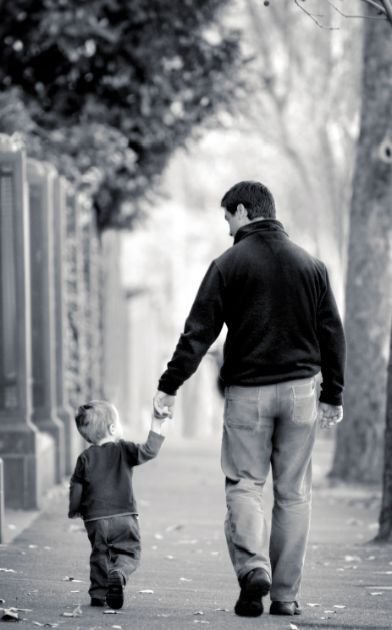A glimpse into father child relationships
The relationships we have with our fathers can be complex, especially if they are on their journey to learning how to be a parent. At the same time, we are learning what it means to be a child.
Depending on when your dad became a dad, this timing can have an impact on the relationship between the two of you. Those that became fathers later in life (after their 35th birthday) were found to spend more leisure time with their children, had overall higher expectations, and were more nurturing (Heath, 2023). However, this age did not show any impact on the extent to which the father may try to control their child (Heath, 2023).
While evidently, father-child relationships can have a long-term impact, more than you might realize.
Boys from the ages 5-7 with absentee fathers are more likely to invest less of themselves in future relationships, can be more manipulative, and are likely to be more competitive (Rutherford, 2019). Boys from the ages 5-7 that had a present father are likely to invest more of themselves in future relationships and, therefore, have more secure relationships (Rutherford, 2019). Girls with an absent father tend to have more intimate partners, are more dominant, and are better liars. While girls with a present father are more popular, feminine, and securely attached to their partners (Rutherford, 2019). Between the ages of 5-7, parent relationships and involvement are highly influential to children leading to longstanding impacts later in life (Rutherford, 2019).
Father-child relationships can be repaired! It is a theme that father-child relationships can see an increased number of disputes between the child and the father from 4 onwards, in contrast conflict within mother-child relationships decrease at the age of 4 (Weaver et al., 2014). However, even much later in life, when the relationships are rekindled, there is evidence that adult children will have an altered, more positive sense of self than before (Miller, 2012). Both parents and the now older children also become more in tune with their emotions, allowing them to repair even their earlier wounds (Miller, 2012).
References:
Heath, T. (2023). The Impact of Delayed Fatherhood on the Father-Child Relationship. The Journal of Genetic Psychology. https://www.tandfonline.com/doi/abs/10.1080/00221325.1994.9914799?casa_token=uSg kSGDHeb4AAAAA:jo9XZcZPNb5Ku21eX8DC_Ph1g8Bksd0sLnt78aRZNksfNVPtqW63zUsVOg qx5SaLkGoFyHpuL7DZ
Miller, E. J. (2012). Why the Father Wound Matters: Consequences for Male Mental Health and the Father-Son Relationship. 22(3), 194–208. https://doi.org/10.1002/car.2219 M.D. Rutherford (2019).
Developmental Psychology: An Evolutionary Perspective, 4 th edition. Exelixi Press. ISBN: 978-1-927565-23-0.
Weaver, C. C., Shaw, D. S., Crossan, J. L., Dishion, T. J., & Wilson, M. N. (2014). Parent–Child Conflict and Early Childhood Adjustment in Two-Parent Low-Income Families: Parallel Developmental Processes. 46(1), 94–107. https://doi.org/10.1007/s10578-014-0455-5

